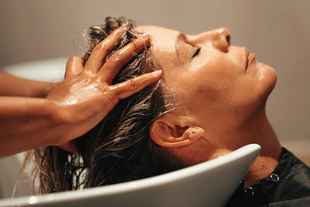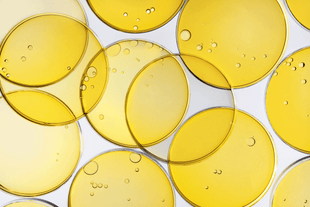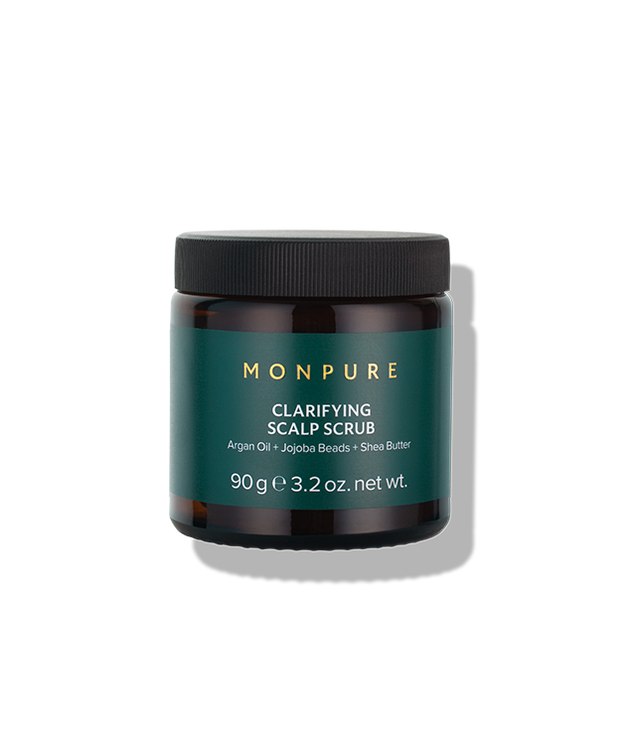Did you know that the human body is made up of over 100 trillion microbes - microscopic single-celled bacteria, fungi and other microorganisms that combine to form what is known as a ‘microbiome’, an ecosystem that keeps the body’s vital systems in balance. When this ecosystem is in balance, the microbiome keeps everything running smoothly. There are microbiomes throughout the body, including the scalp.
What is the Scalp Microbiome?
The scalp microbiome is vital for keeping your scalp and hair healthy. Like the skin microbiome, it provides the first line of defence against harmful pathogens, shielding the hair follicles and the scalp from infection, toxins, irritation, hair damage and more. This results in a stronger scalp barrier and healthier hair. In contrast, a disrupted and imbalanced scalp microbiome can result in irritation, dryness, damaged hair, sebum buildup and may even impede hair growth.
When our scalp microbiome is in a state of equilibrium, these microorganisms do not cause harm. But once a scarcity or overgrowth of certain microbes occurs, this balance is disrupted. Changes in the scalp and its microbiome can lead to several problems like itchiness, irritation, and dandruff. Microbes also reside in the hair follicle, and a disruption in this delicate environment may lead to hair loss. Maintaining the right balance of yeast and bacteria is particularly important for preventing inflammatory conditions like eczema on the scalp.
The microbiome of the scalp is particularly unique, due to the high volume of vitamin-rich sebum production in the sebaceous glands and the unusually humid environment. As a result, the scalp gives rise to cutaneous bacteria, pathogens and microbes that are not found anywhere else in the body.
Disruptions to the Scalp Microbiome
Scalp Buildup
An accumulation of environmental grime, product build-up and dead skin cells on the scalp can clog the hair follicles, trap scalp sebum, cause irritation and disrupt the scalp microbiome.
One of the most notable species of microorganisms found on the scalp is the Malassezia species, a form of yeast fungi that grows on the hair follicles and causes dandruff. Although Malassezia naturally occurs on the scalp in a healthy and balanced scalp microbiome, an overproduction of sebum gives this type of yeast the ‘perfect environment’ to flourish and grow, causing a disruption in the scalp’s intricate microbiome. Sebum buildup on the scalp gives rise to an overproduction of the Malassezia species because the yeast depends on fatty acids to survive, and sebum has a high fat content. This overgrowth ultimately leads to an imbalance in the microbiome, resulting in dandruff, itching, irritation and even flaking.
Just like the skin, a healthy scalp microbiome requires a symbiosis of healthy bacteria and yeast, but can go awry when thrown off balance. Natural scalp scrubs cultivate a healthy scalp microbiome. Along with ridding the scalp of nasty build-up, exfoliation also primes the scalp for the absorption of other active ingredients that support scalp and hair health.
MONPURE’s Clarifying Scalp Scrub, starring biodegradable jojoba beads, argan oil and shea butter, is the perfect gentle exfoliant to remove build-up, excess oils and dead skin cells on the scalp. It also works to hydrate and moisturise dry, itchy skin and buff away any flakes that may be causing discomfort.
Stripping the Scalp
Stripping away the scalp’s natural defences with harsh shampoos or cleansing ingredients can lead to an imbalance in the scalp microbiome. This inhibits the growth of certain microorganisms and enables others to flourish. Stripping the scalp is usually a result of using a shampoo formula that contains traditional sulphates, a cleansing ingredient that can remove an excessive amount of your natural scalp oils. Sulphates create a foamy lather and have been linked to the deterioration of scalp health including itchiness, dryness, flakiness, and loss of hair density. Check your shampoo labels for ingredients like sodium lauryl sulfate and sodium laureth sulfate, these are the two used most commonly in traditional haircare products.
Consider switching to a sulphate-free shampoo to avoid removing your scalp’s natural protective oils and healthy microorganisms. When using protein-rich, nourishing and fortifying formulas, the scalp is rid of the product, pollution and sebum build-up that occurs between washes, while also being strengthened from root to tip without fear of damage or imbalance.
The Strengthening Silk Protein Shampoo is sulphate, silicone and paraben-free and is formulated with high-performance active ingredients. It works to fortify the hair, rebuild the structure and strength of damaged strands, restore moisture to the scalp and protect the hair, scalp and follicles from environmental aggressors.
Not Replenishing Scalp Moisture
Harsh ingredients that strip the scalp’s natural oils, coupled with the fallacy of only conditioning the ends of the hair means that the scalp’s moisture is never replenished. This results in a never-ending cycle of dehydrating and starving the scalp of essential nutrients. When the scalp becomes dehydrated, it can lead to an overproduction of sebum, and in turn, an imbalance in the scalp microbiome.
For people with fine hair in particular, they tend to worry that their fine or thinning hair will be weighed down and appear greasy and lifeless when they apply products to the scalp. However, MONPURE’s formulations completely revolutionise this practice. Our skincare-inspired range is ultra-lightweight, strengthening and nourishing. It prioritises the often-neglected, yet most important part of the whole ecosystem - the scalp. This supports the health of the scalp microbiome, as the scalp can find its natural oil balance and maintain homeostasis.
The Strengthening Essence-Conditioner, inspired by K-beauty regimes, resembles a skincare essence with a lightweight consistency and nourishing ingredients - and can be applied to both the scalp and lengths without weighing the hair down or leaving it greasy. It allows you to confidently deliver moisture to the scalp and roots after washing, ensuring that the scalp microbiome remains balanced and healthy.
How to Balance the Microbiome from Within
Try Probiotics
Just like your gut microbiome, you can ‘feed’ the scalp’s healthy bacteria by taking probiotic supplements or eating probiotic-rich food, such as yoghurt. Probiotics are live bacteria and yeast that support the health of your microbiomes. Evidence suggests that oral and topical probiotics can help improve the scalp’s microbiome, aiding to alleviate symptoms of acne, eczema, psoriasis and seborrheic dermatitis.
Ease the Tension
While stress is often inevitable, trying to limit it where possible can help support the health of the scalp microbiome. Stress weakens the body’s natural defences against naturally-existing microbes in the scalp, leading to dryness and flakiness. The stress hormone, cortisol, also disrupts the scalp-skin’s barrier function, and can trigger inflammation and irritation.
During a stressful period, there’s nothing quite like a relaxing scalp massage to ease the tension. Introducing a weekly treatment, like the Nourish and Stimulate Scalp Mask, will work to improve scalp health in the face of stress induced flare-ups or hair loss.
This unique formula works to stimulate the follicles and promote hair growth by delivering essential vitamins and nutrients to the scalp, creating the optimum dermatological environment for hair to grow. It also soothes, hydrates and relieves irritation, while rebalancing the scalp.
Leave it on for 15 minutes before your hair wash routine so that the aloe vera can go to work calming any stress-induced inflammation, while exfoliating lactic acid speeds up cell turnover for new growth and camellia tea oil delivers your follicles the nutrients they need.
Focus on Nutrition
Diet and nutrition play a significant role in the health of the scalp microbiome. Nutrients such as Vitamin D3, iron, and zinc play a large role in the immune system’s ability to fight off microbes that are imbalanced on the scalp.
Introducing a scalp-healthy diet that includes dark leafy greens and cruciferous veggies like broccoli; meat or meat alternatives like beans and tofu; and plenty of nuts and seeds will contribute to a healthy microbiome. On the other hand, foods high in sugar tend to exacerbate an out-of-balance scalp microbiome.
If you’re concerned your diet may be the culprit behind your scalp woes, a blood test measuring iron, ferritin and Vitamin D may shed some light on the issue. MONPURE always suggests consulting your doctor when you suspect a nutritional deficiency.
Keeping your scalp microbiome balanced and in check are essential to cultivating healthy, growing hair. From lifestyle changes using probiotics, stress relief and nutrition - to scalpcare techniques like exfoliation and opting for sulphate-free shampoo, your scalp and hair will thank you for supporting the invisible ecosystem of microbes that exist all over the scalp.

















